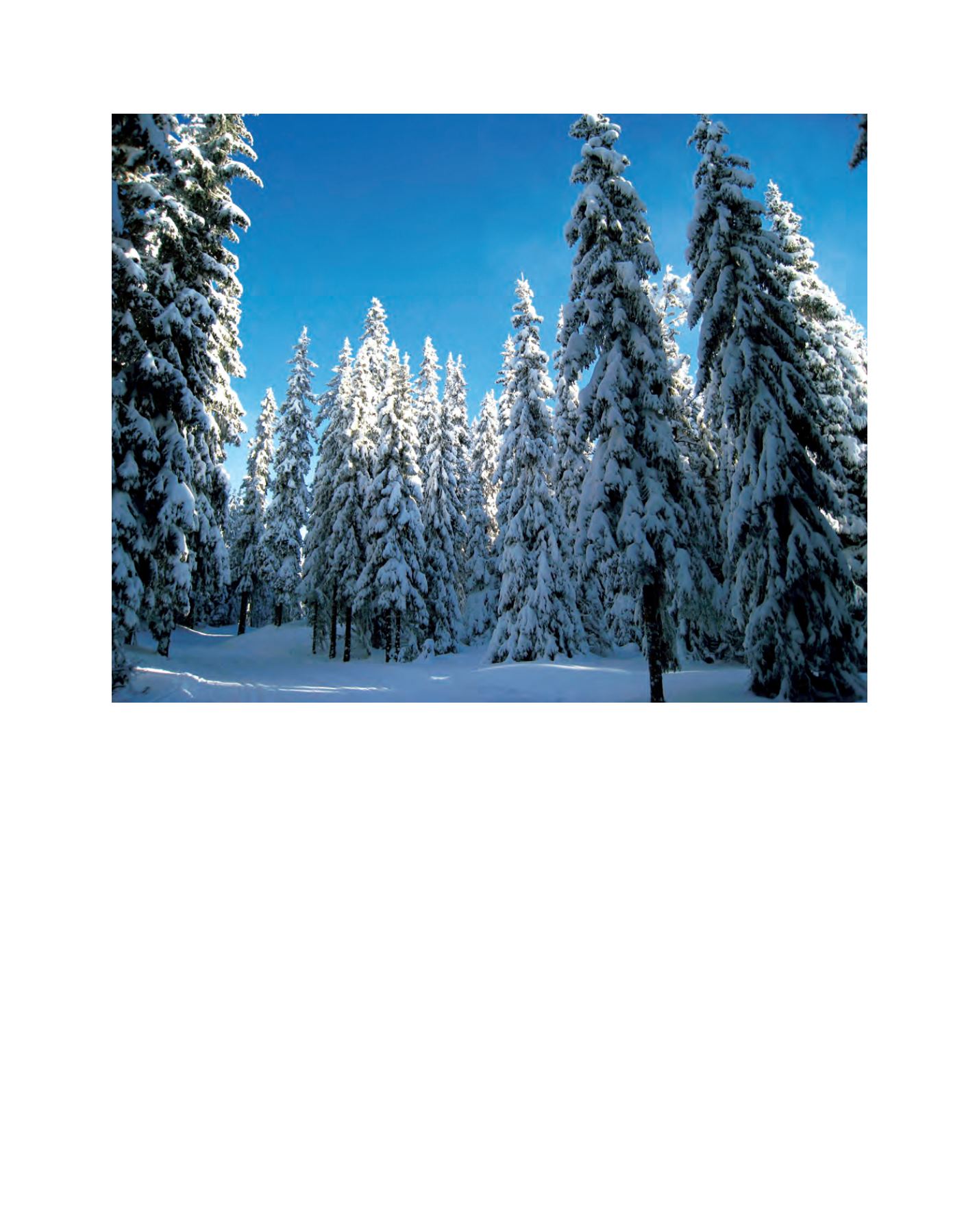

[
] 182
the forest from 15 September to 15 April only. Both
municipalities and non-governmental organizations
help maintain a vast network of trails for hiking and
cross-country skiing.
The principle of public access is underlined by the
forest policy and the environmental standards used by
forest owners. When practising forestry, forest owners
are obliged to clear trails and ski tracks, and to repair
damages caused by vehicles. The forestry sector contrib-
utes to outdoor activities by building and maintaining
forest roads and by carrying out silvicultural measures
to increase the accessibility of forests.
Norwegian forests are often mentioned as important
for public health and as an educational arena for chil-
dren and youth. Using the forests for recreation and
sports can have a positive impact on both physical and
mental health.
Hunting and fishing are also important forest activi-
ties in Norway. The right to hunt and fish is exclusively
reserved for landowners, but the public is granted the
right to fish in lakes and rivers by purchasing licences.
Hunting licences are also sold, which gives the public
Support schemes for forestry, on a regional and local level, include
financial support to forest management such as silviculture, build-
ing of roads and environmental measures. Support is also granted
in order to encourage the harvest of timber and forest residues for
production of bioenergy. Some regions, mainly the western and the
northern part of Norway, have little history of commercial forestry
and are therefore prioritized when aid is allocated.
Economic support is also granted for developing forest manage-
ment plans including environmental inventories. Such plans are
important for ensuring that forest activities are carried out within
the framework of sustainable forest management.
An asset for the society
Free public access to land, including forests, is an old and important
principle in Norway. The general public may use the forests for
recreational activities and sports at any time of year. Public access to
nature is enforced through the Outdoor Recreation Act. Motorized
recreational activity is prohibited off-road.
Traditional activities such as berrypicking and mushroom-
ing are still important, while modern activities such as off-road
biking are increasingly popular. In order to prevent forest fires,
the public is allowed to collect dry wood and make campfires in
Forests have many important functions related to local climatic conditions
Image: The Ministry of Agriculture and Food, Norway
















